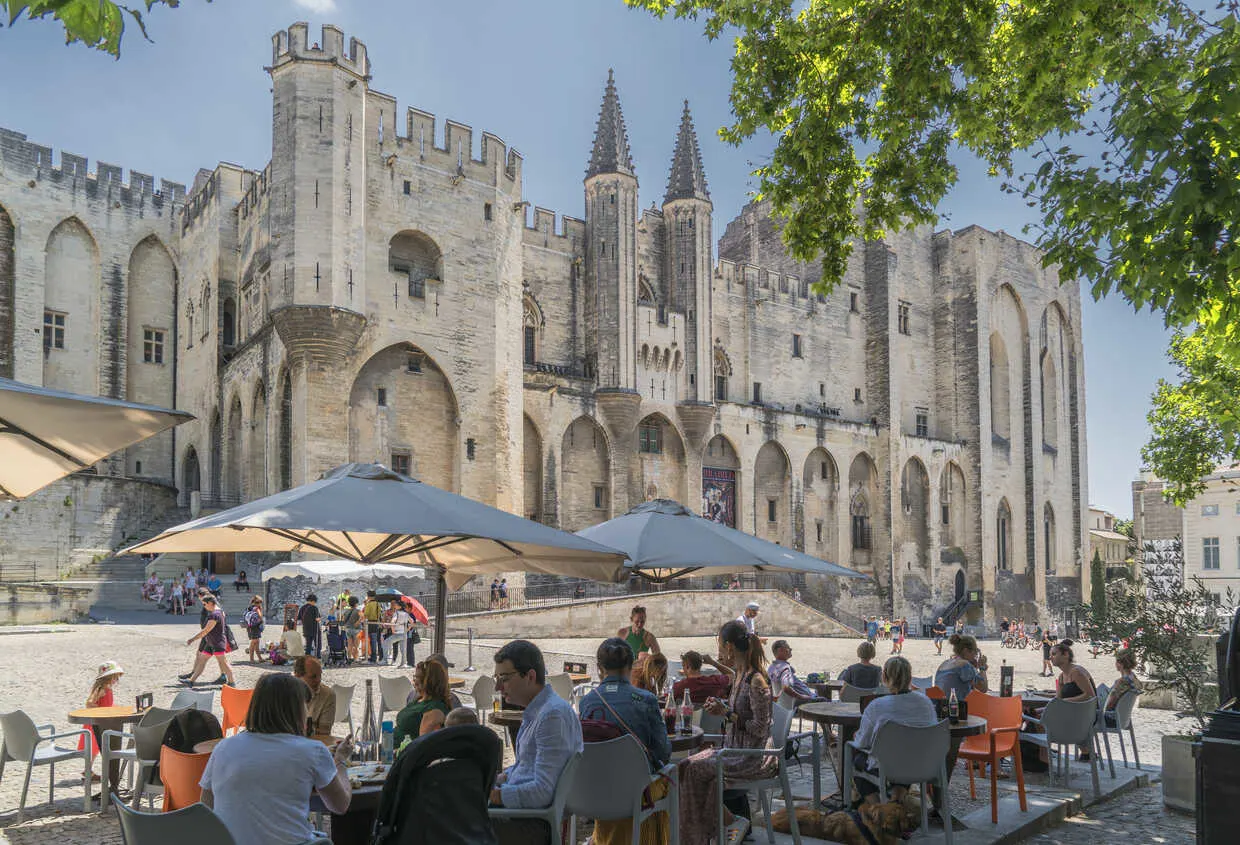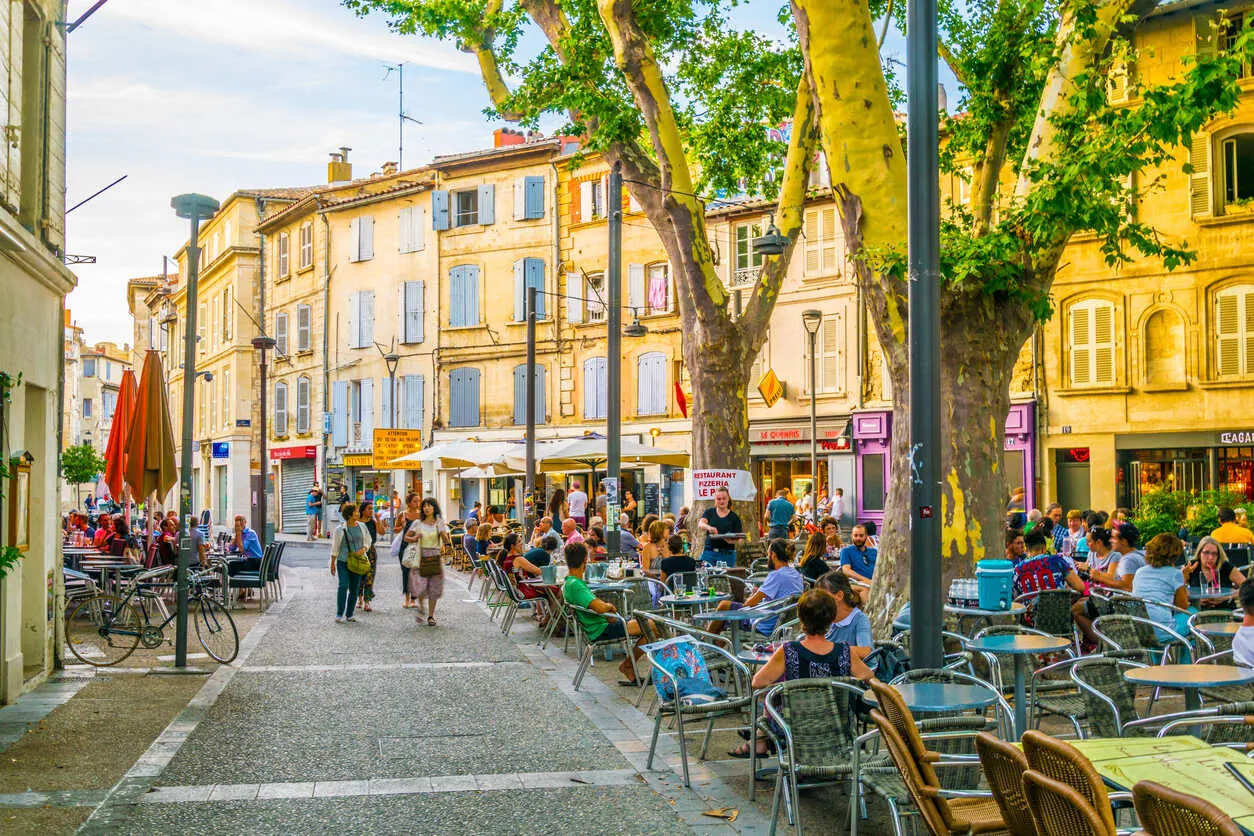From L.A. to Avignon: A California Climate… A Better Lifestyle
7 min readThe America she knew and loved seemed to be slipping away.
This was the sentiment plaguing Maureen Steinberg as the 2016 US Presidential election carved a corrosive swathe through the nation.
An ambitious real estate agent professional, Maureen enjoyed what she described as “a very comfortable life” on the outskirts of Culver City, an enclave of Los Angeles near Venice Beach. She had never really imagined leaving the United States to retire abroad. Her mother had immigrated to the US in the 1950s in pursuit of the American dream, and Maureen had always felt immense pride in being a part of such an amazing country.
And yet… the polemic political discourse and shift in women’s reproductive rights quickly became issues she could no longer ignore.
Although hesitant to paint her homeland in a negative light, the outcome of the 2016 election was the driving force that motivated Maureen to leave. “Americans became so hateful and angry,” says Maureen. “And so stressed. When I return, I see how stressed we are all the time, worried about everything.”
Although she loved living in Los Angeles, the idea of leaving the US started to gain momentum—with France continuing to appear as a top choice.
“I started doing a lot of research online,” says Maureen, “looking at different countries, their lifestyles, and their cost of living. France continually emerged as a country that met many of the things I was looking for in a place to live the rest of my years.”
Learn more about France and other countries in our daily postcard e-letter. Simply enter your email address below and we’ll send you a FREE REPORT: A Taste of France: All the Ingredients for the Good Life.
By submitting your email address, you will receive a free subscription to IL Postcards and special offers from International Living and our affiliates. You can unsubscribe at any time, and we encourage you to read more about our Privacy Policy.

The 14th-century Palace of the Popes is the crown jewel of Avignon.|©iStock/acavalli
In 2019, she embarked on a six-week scouting trip, driving around France and exploring the different regions. It was initially hard to narrow down a choice, as she found each area “absolutely gorgeous.” As a Southern California native, the Dordogne—although beautifully lush and green—seemed too cold and rainy. But the southeast had a climate similar to Los Angeles. So she concentrated on towns in this region, until she finally happened across the perfect fit.
Avignon, the so-called “City of Popes.” In the 14th century, starting with Pope Clement V, seven Catholic popes resided in Avignon instead of Rome. Today, the city is a historic and cultural mecca, with impressive medieval ramparts guarding its borders. Winding cobblestone streets snake throughout the interior, each giving way to a bustling market or quaint square with gothic architecture. All of this unfolds under the watchful eye of the city’s crown jewel—the imposing Palais des Papes (Palace of the Popes). Built in 1352, the Palace is one of the most visited tourist attractions in southern France.
The city’s historical lineage and architectural features only accentuated the charms of Avignon for Maureen, and she quickly found herself infatuated with her adopted home.
“There’s something about walking around buildings, stones, and streets that have been here for hundreds of years,” she says. “I find it fascinating.”
She believes her overall well-being has vastly improved by virtue of a French lifestyle, where she’s not constantly moving about by car. Aside from the infamous L.A. traffic, the distance between her and her friends’ homes made it difficult to ever meet up. After working a full day, battling the freeway crowds, and finally arriving home, the idea of going out again was overwhelming.
The French outlook of slowing down, taking time for yourself, and enjoying life has brought Maureen a great deal of peace.

The many perks of life in this cultural mecca include include al fresco dining and gourmet meals for a steal.|©iStock/trabantos
Today, she has to remember to pencil in time for herself, as her days are booked up with social activities and dates with her new French friends. On those down days, she loves to walk around Avignon, pop in at a local café, stroll one of the beautiful farmers markets, or take off into the mountains.
Exercise and getting outdoors has become a big priority in her life. She can leave directly from her apartment and walk to trailheads (just outside the ramparts) that lead into the countryside.
Having now lived in France since 2020, Maureen says to keep in mind that the transition will be challenging at first, and you won’t find things exactly as they were back home. As the French are not “living to work” but “working to live,” the slower pace of life will challenge some of your American ideals of convenience.
“You may get to a shop at 12 p.m.,” she says, “and it will be closed for lunch… which usually means around two hours’ time. So, you learn to adapt. You have a cup of coffee and then come back later.”
While this may take some getting used to, that emphasis on a slower pace is now something Maureen has come to cherish about her new home.
“You sit down at a café, and you can stay there forever,” she says, “They’ll never ask you to leave the table. One time, they even closed down the restaurant where my friend and I were eating—just told us to put our dishes aside and they would pick them up in the morning. It’s very relaxing and appeals to me very much.”
The lower cost of living is also a very attractive feature of Maureen’s new life in France. Her monthly budget comes in around $2,000. The price of going out to eat is also significantly lower than in the US—where she remembers paying $60 for two hamburgers and two orders of fries on a recent trip to L.A. In France, Maureen can enjoy a gourmet three-course meal for two at that price.
Perhaps even more impressive are the healthcare savings.
At first, Maureen was hesitant to utilize the French healthcare system, the memory of crippling medical bills a hangover of her life in the US.
Yet she found herself pleasantly surprised when her hand was forced. At the urgent behest of newfound French friends, she eventually sought medical assistance for a stubborn eye infection. “There was an eye specialist in the local hospital,” she says. They treated her eye and sent her home, with the bill to come later. She thought, “This is going to be a fortune.”
But the bill turned out to be a total of €12.
Despite her initial trepidation, Maureen says she has found the French healthcare system to be “excellent” and is comfortable with pursuing care in the future. She notes that there’s less office personnel, which contributes to lower costs. You may not find a receptionist to check you in, or a separate nurse to take your blood pressure. It might be the doctor who takes care of everything.
Other quirks of French life include adapting to the metric system, getting used to different household appliances, and bumping heads with the French language— which Maureen has taken on with a gusto.
From group classes, to an individual coach, and a lot of self-study in her apartment, her French skills have improved by leaps and bounds. Her dedication is admirable. She points to one of the real benefits to her “boots on the ground” approach: getting to practice in the local shops, restaurants, and markets. Here, she says, you can be sure to learn “street French.”
Moving to Avignon, Maureen has forged a rich, full life for herself in southern France. Despite retaining a staunch love of the US and pride in being an American, her move to Avignon has given her a kinder, more balanced, and more fulfilled life.
Maureen is one of those lucky individuals with dual citizenship, Irish/American, so she is able to reside permanently in France with her EU passport. For others, the most common route to reside legally in France is the Long Stay visa, which, thankfully, is not difficult to obtain.
The Long Stay visa allows holders to stay up to 12 months in France. Expats in France can then renew the visa, which then becomes a residence card. The visa continues to renew every year until the holder hits five years of living in the country. At this point, expats can apply for long-term (10-year) residency or French citizenship. You must apply for the Long Stay visa in your country of residence. Although the French consulate makes the final decision, the visa processing is now handled by a third party, which has processing centers in major US and Canadian cities. Applicants can check the VFS website to find the closest center.
A monthly income of €1,554 ($1,711) is the financial requirement for the Long Stay visa—equivalent to the French minimum wage.
Working in France is complicated if you don’t have an EU passport, citizenship, or long-term residency. But you can find working visa options, along with details on other visa application processes, on the France-visas website.
Learn more about France and other countries in our daily postcard e-letter. Simply enter your email address below and we’ll send you a FREE REPORT: A Taste of France: All the Ingredients for the Good Life.
By submitting your email address, you will receive a free subscription to IL Postcards and special offers from International Living and our affiliates. You can unsubscribe at any time, and we encourage you to read more about our Privacy Policy.



